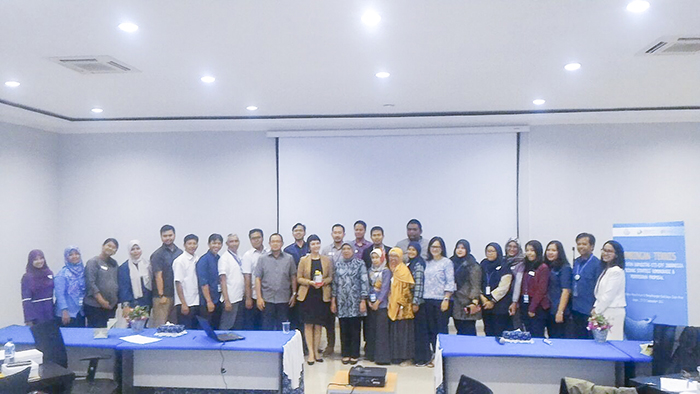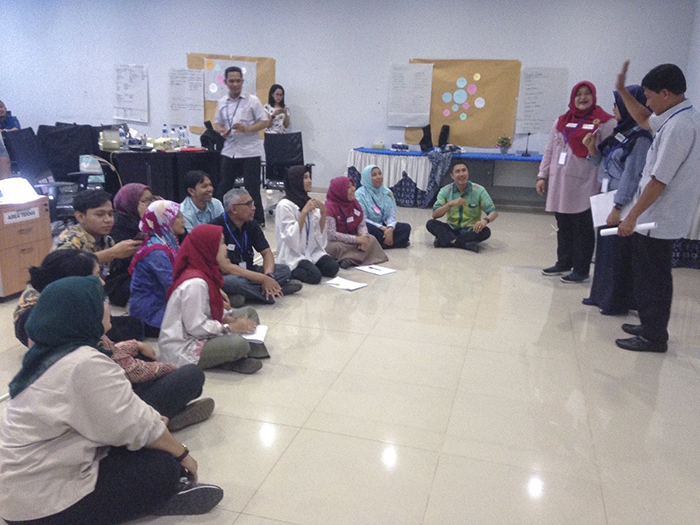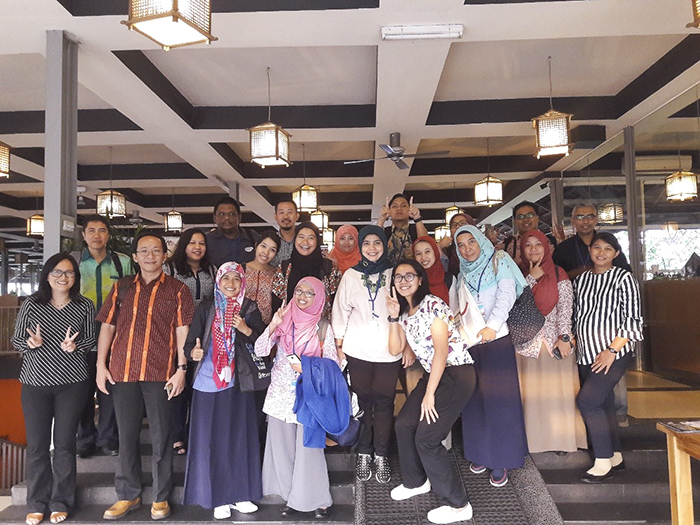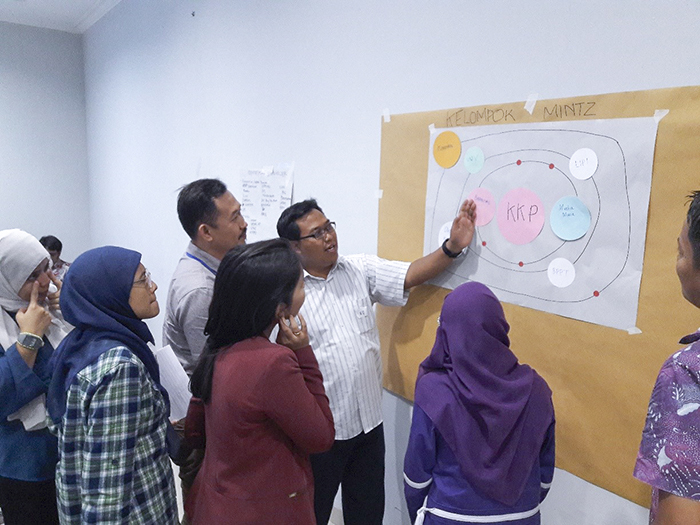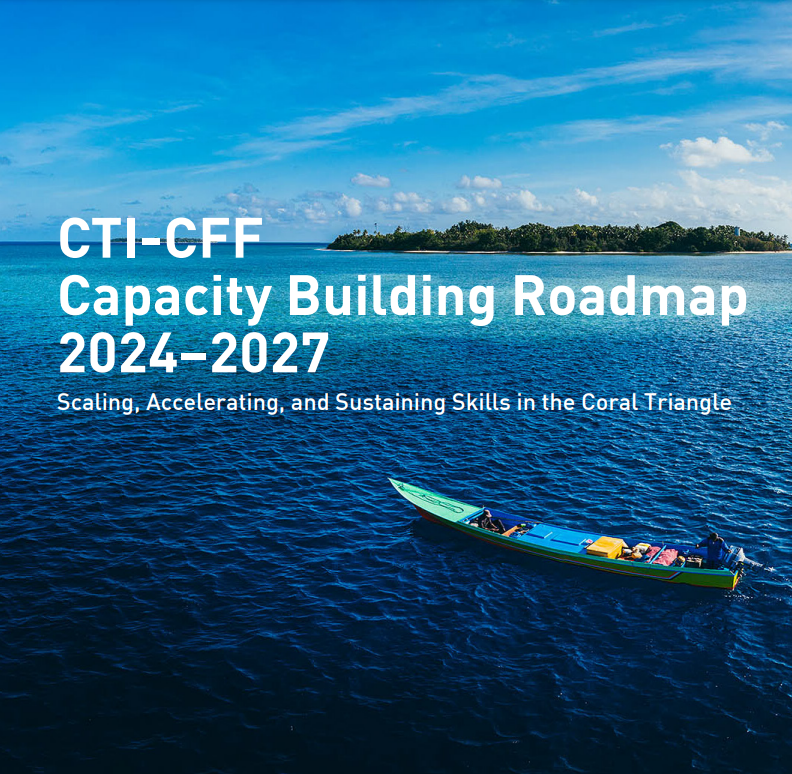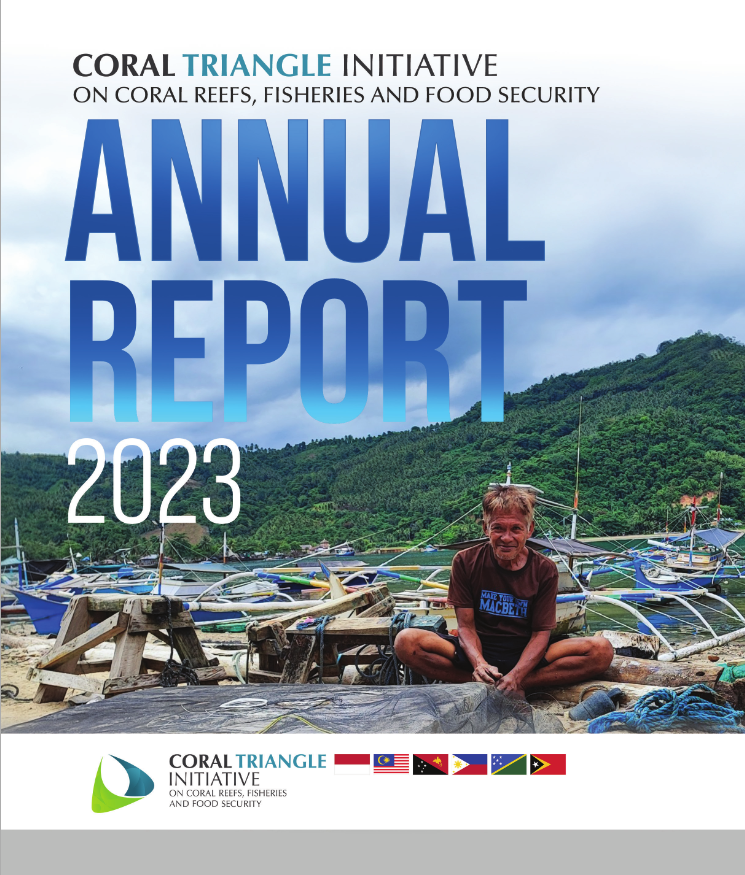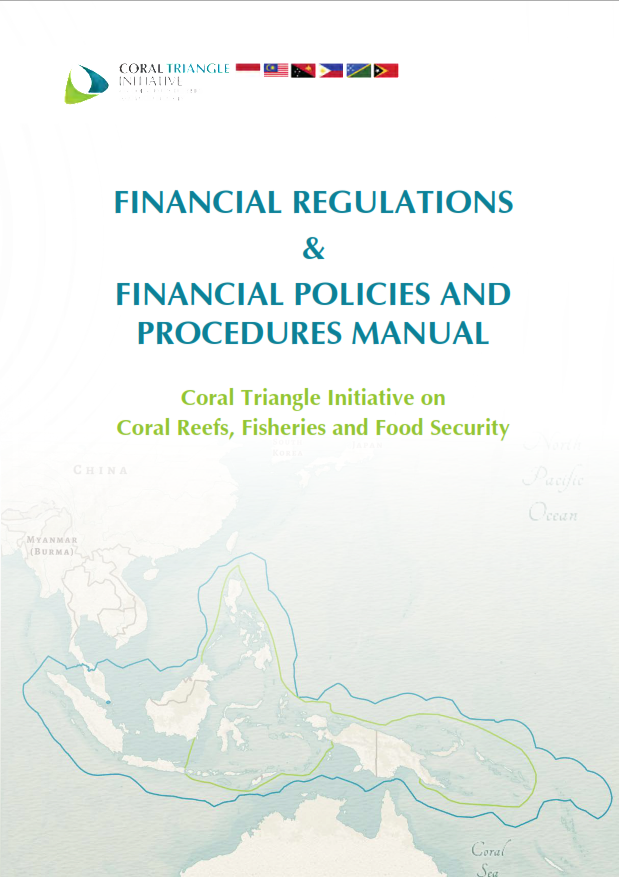Capacity Strengthening for NCC Indonesia: Technical Guidance on Communication Strategy and on Proposal Writing
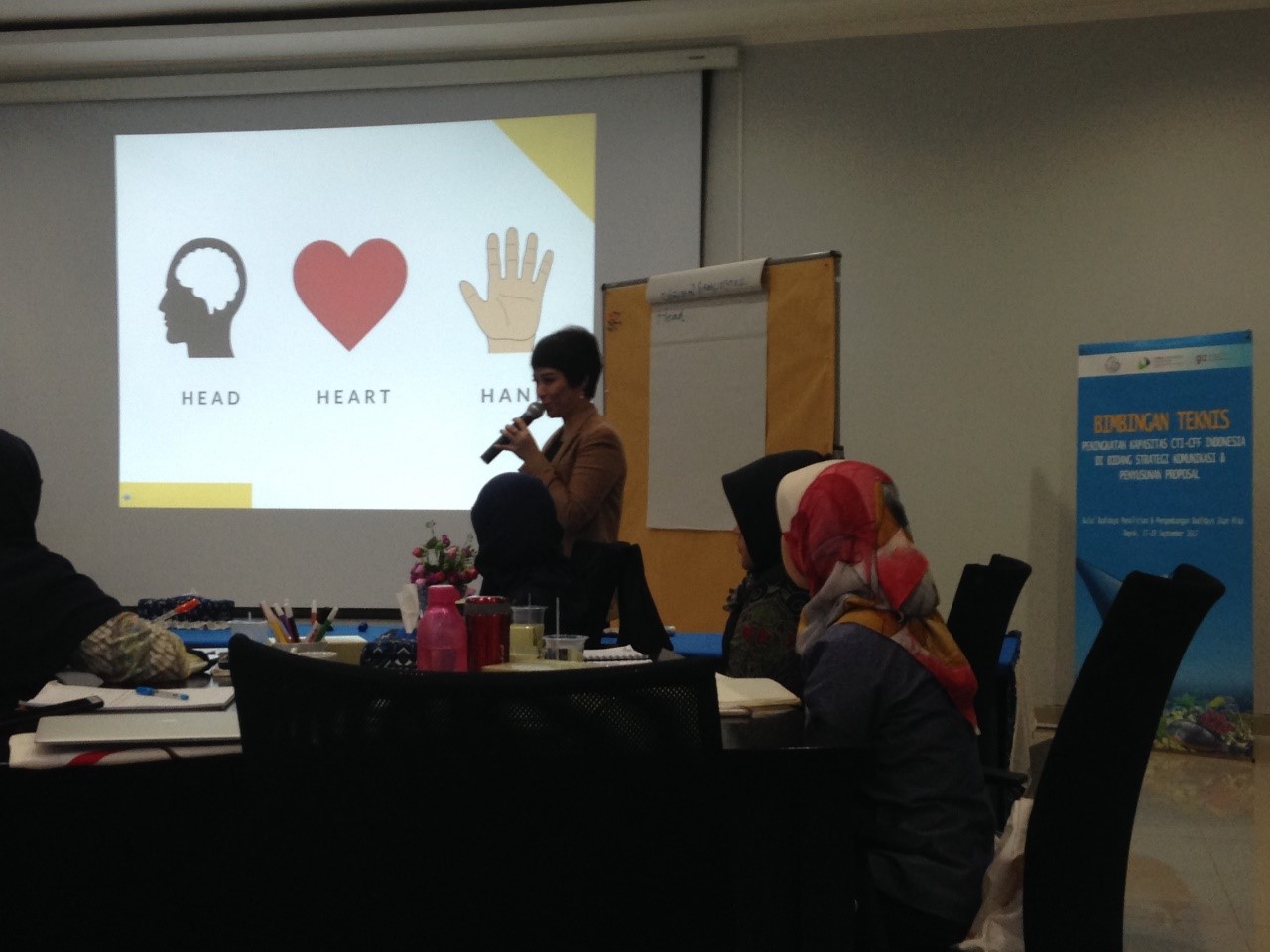
The National Coordination Committee of CTI-CFF in Indonesia recently held a Technical Guidance on Communication Strategy and on Proposal Writing. The event took place at the Ministry of Marine Affairs and Fisheries (MMAF) facility in Jakarta suburb, Depok, on last September 27th to 29th, 2017. The event was officially opened by Mr. Agus Dermawan of NCC Indonesia. Sri Atmini of the NCC Secretariat also expressed her remark at the opening ceremony. Both encouraged the participants to maximize their learning, and emphasized on the importance of having excellent communication skill. Such skill is highly needed especially in the context of NCC Indonesia when they are partaking at the CTI-CFF regional forum.
Participants of the technical guidance comes from across directorates of the MMAF, NCC Indonesia Secretariat, and 2 staff from the Regional Secretariat of CTI-CFF. The target participants are those who are responsible for internal and external communication of their directorate, for inter/external agencies cooperation, and program and technical units.
The technical guidance’s agenda was tailored to accommodate participants needs, as have been previously discussed and learned through the previous Capacity Needs Assessment done by the Sulu-Sulawesi Seascape Project. Of the 3 days training, the agenda covers a range of topics such as: stakeholder/ target audience analysis, including what specific information is relevant to be provided for those identified stakeholders; overall communication strategy, which include personal skills on public speaking, on media relation strategy, and on various outreach program with different target groups. On each session on day 1 and 2, while learning about the overall communication strategy, the participants were actively involved in group work, role play, simulation, and individual presentation. Acting as facilitator and resource person for the sessions were Ketut Udi Prayudi, an accredited BRIDGE Facilitator, Lala Tangkudung, a trainer/lead facilitator from Talk.Inc., and Agus Sudibyo of the Indonesia Press Council.
On the 3rd day of the training, led by GIZ Advisor, Mareska Mantik, the participants learned about the principles of proposal writing, priority issues identification followed by how to develop strategic objectives hence strategic plan based on the identified issues. The participants further strengthen their skill for proposal writing by exercising the use of the Logical Framework Matrix to develop their particular proposed project based on the strategic objectives they have.
While learning about proposal writing, during a panel presentation participant also had the chance to have a discussion with Mr. Zulazmi, Deputy Country Director, from GIZ Indonesia, Mr. Darmawan Triwibowo, the Executive Director of TIFA Foundation, and Mr. Diman Simanjuntak, Sr. ASEAN Affairs Specialist of the USAID Mission to ASEAN. Based on the grant making and funding procedure information presented by the 3 speakers, the participants were highly interested and motivated to design various programs that are based on their set priorities, while still in line with these agencies’ priority support areas. Some potential partnerships were also discussed during the session.
At the closing ceremony, numbers of participants were selected by their fellow participants as “The Most Active”, “The Most Discipline”, “The Funniest”, “The Most Active in Asking Question” and “The Most Helpful”. Three participants were also selected as the overall best achievers of the technical guidance: Imam Fitrianto, Udin Rojudin, and Arik Sulandari.
Based on the evaluation done by the facilitators of the technical guidance and the organizer from the NCC Indonesia Secretariat, most participants expressed how they appreciate the learning environment created, the participatory training method used, the practical skills they learn, and most importantly, how they were encouraged to exercise what they have learned while still in the training venue. As one participant said, she never had any training like this. The training was so much fun that she did not realized she had learned so much. Another said: attended the training she did not only learn about various things, and how she is starting to use what she had learned to improve her work. Now she had also widened her networking, and this helps her future communication with others.
The technical guidance was jointly organized and funded by Marine Spatial Management Directorate General of MMAF, NCC Indonesia Secretariat, and BMUB Sulu-Sulawesi Seascape Project.

